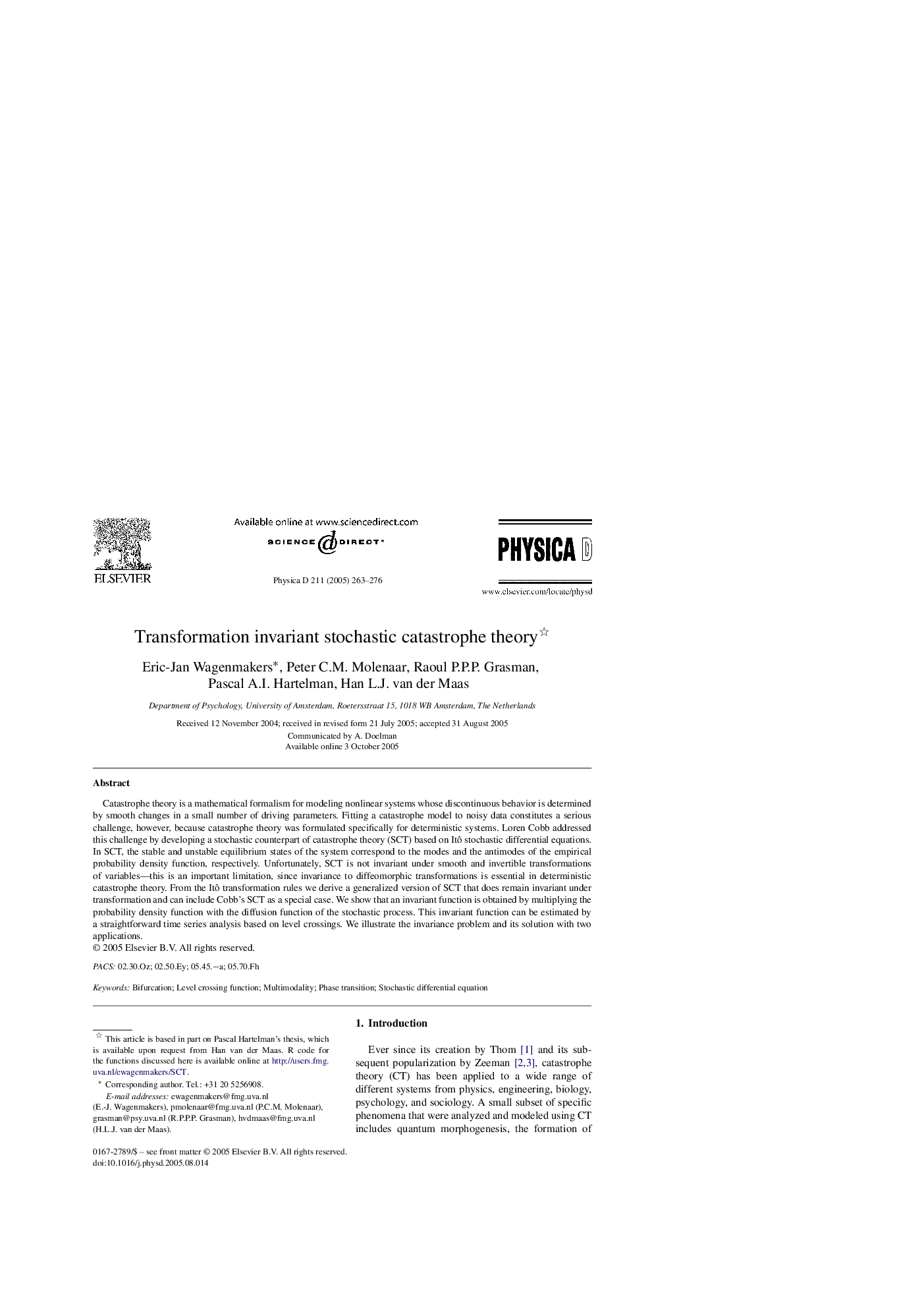| Article ID | Journal | Published Year | Pages | File Type |
|---|---|---|---|---|
| 9877507 | Physica D: Nonlinear Phenomena | 2005 | 14 Pages |
Abstract
Catastrophe theory is a mathematical formalism for modeling nonlinear systems whose discontinuous behavior is determined by smooth changes in a small number of driving parameters. Fitting a catastrophe model to noisy data constitutes a serious challenge, however, because catastrophe theory was formulated specifically for deterministic systems. Loren Cobb addressed this challenge by developing a stochastic counterpart of catastrophe theory (SCT) based on Itô stochastic differential equations. In SCT, the stable and unstable equilibrium states of the system correspond to the modes and the antimodes of the empirical probability density function, respectively. Unfortunately, SCT is not invariant under smooth and invertible transformations of variables-this is an important limitation, since invariance to diffeomorphic transformations is essential in deterministic catastrophe theory. From the Itô transformation rules we derive a generalized version of SCT that does remain invariant under transformation and can include Cobb's SCT as a special case. We show that an invariant function is obtained by multiplying the probability density function with the diffusion function of the stochastic process. This invariant function can be estimated by a straightforward time series analysis based on level crossings. We illustrate the invariance problem and its solution with two applications.
Keywords
Related Topics
Physical Sciences and Engineering
Mathematics
Applied Mathematics
Authors
Eric-Jan Wagenmakers, Peter C.M. Molenaar, Raoul P.P. P. Grasman, Pascal A.I. Hartelman, Han L.J. van der Maas,
